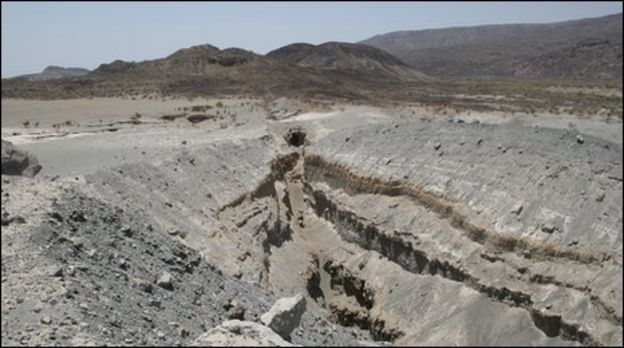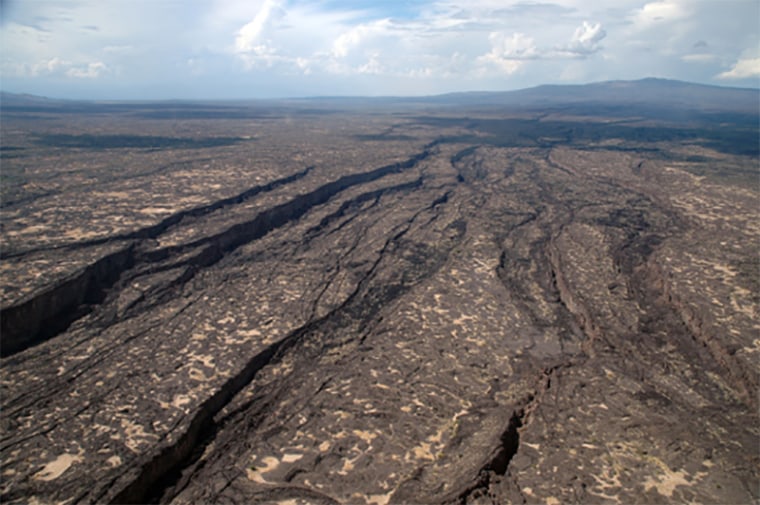Now more than ever, scientists are convinced that Africa will split in two and a new ocean will form, though this may not be anytime soon. The reason for this strong belief is that the Arabian, Nubian, and Somali tectonic plates underneath the continent are expected to rip apart so much that Africa will literally be divided and a new ocean will form.
This will, however, take between five and ten million years, geologists said. The specific area where the plates are splitting is the remote Afar region of Ethiopia, one of the hottest places on earth where daytime temperatures can go to 130 degrees Fahrenheit.
In 2005, a 35-mile-long rift up to 25 feet wide suddenly split open the desert ground in the region over a period of just 10 days. It has been expanding ever since, according to geologists working in the area.

University of Leeds Ph.D. student Christopher Moore said there is evidence that the ‘oceanic crust’ which is forming in the area is very different from continental crust in composition and density.
For a while now, scientists have suspected that the plates are pulling apart but new improvements to GPS are making them more confident and helping them find out what’s really happening beneath the surface.
“With GPS measurements, you can measure rates of movement down to a few millimeters per year,” said marine geophysicist Ken Macdonald of the University of California, Santa Barbara. “As we get more and more measurements from GPS, we can get a much greater sense of what’s going on.”
At the moment, scientists still don’t really know what’s causing the tectonic plates to move in the first place. However, the leading theory is that extreme heat is causing rocks to bubble at the point where the three plates meet.

At the end of the day, these rifts will reshape the continent.
“The Gulf of Aden and the Red Sea will flood in over the Afar region and into the East African Rift Valley and become a new ocean, and that part of East Africa will become its own separate small continent,” said Macdonald.
Researchers are currently looking at conducting experiments in the area to help them figure out how the surface of the Earth is shaped, said a BBC report. Knowing how the Earth is shaped will help them “better understand natural hazards such as earthquakes and volcanic eruptions.”










